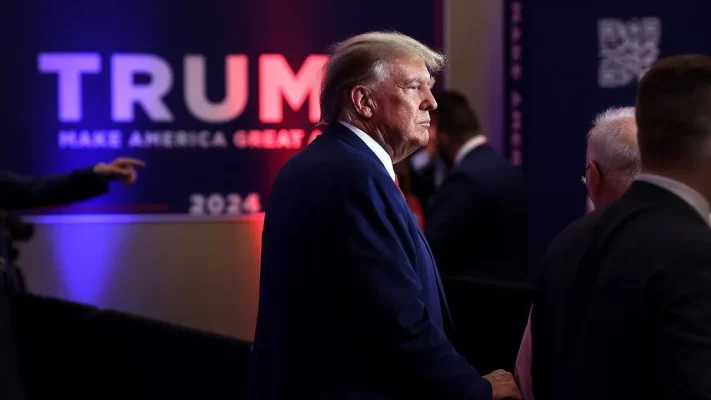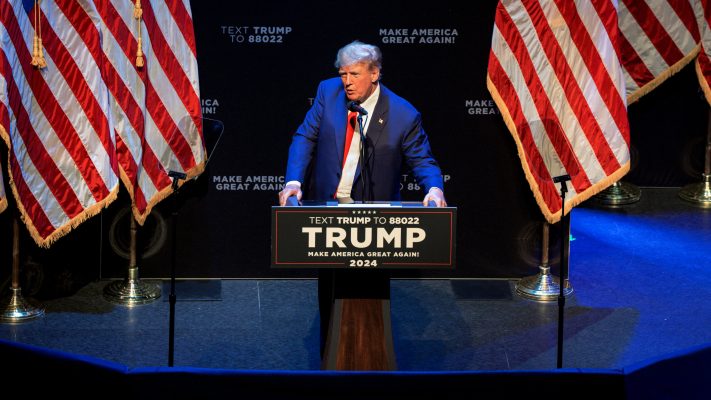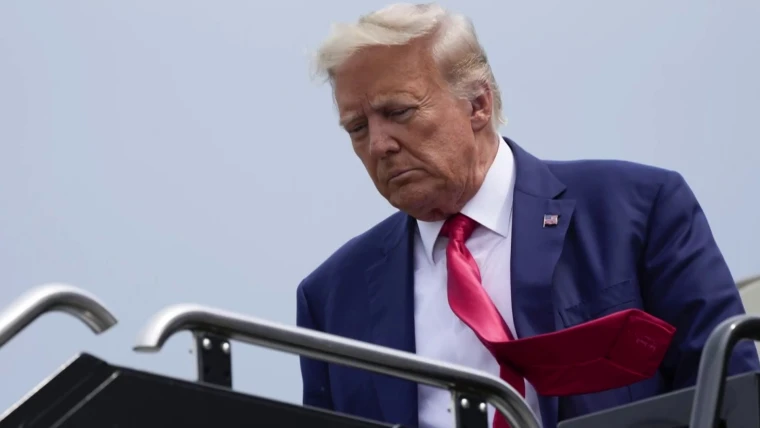Trump’s Election Charges: A Simplified Perspective
Former U.S. President Donald Trump is currently facing a series of legal battles, one of which involves Trump’s election charges. He recently appeared in a Washington DC court, denying allegations that he conspired to overturn the results of the 2020 election.
Trump, speaking softly in court, confirmed his not guilty plea and his personal details. He also assured the court that he was not under any substance influence. This marked the beginning of a new chapter in the saga of Trump’s election charges.
The Details of Trump’s Election Charges
This court appearance marks Trump’s third time as a criminal defendant in four months. The charges against him, known as Trump’s election charges, include conspiracy to defraud the U.S., obstructing an official proceeding, and conspiracy against citizens’ rights.
He entered the courthouse through a backdoor, just a short distance from the U.S. Capitol, where the riot that is central to the prosecution’s case took place.
The severity of Trump’s election charges has drawn significant attention, with the case being closely watched by both the public and legal experts.

After the court hearing, Trump spoke to reporters, describing Trump’s charges as “persecution of a political opponent”.
He also expressed his sadness about the state of Washington DC, mentioning the “filth and decay” and the “broken buildings and walls”.
He stated that his arraignment was a “very sad day for America”. His comments reflect his perspective on Trump’s election charges, framing them as a politically motivated attack rather than a legal issue.
You may also like: Trump Election Conspiracy Charges
The Defense Strategy
One of Trump’s lawyers, Alina Habba, hinted at a possible defense strategy for Trump’s charges. She suggested that Trump might have received poor advice from his team after the election. She stated that while everyone knew he lost the election, that wasn’t the only advice he was given.
This could be a key point in the defense against Trump’s election charges. It raises questions about the role of Trump’s advisors and their influence on his actions following the election.

The next hearing for Trump’s charges is scheduled for August 28th. It’s expected to be procedural, but a trial date may be set.
Trump is currently facing five upcoming trials, three in New York, one in Florida, and the current case in Washington DC.
Despite these legal battles, he remains the frontrunner for the 2024 Republican White House nomination. The ongoing legal proceedings surrounding Trump’s election charges will undoubtedly play a significant role in his political future.





